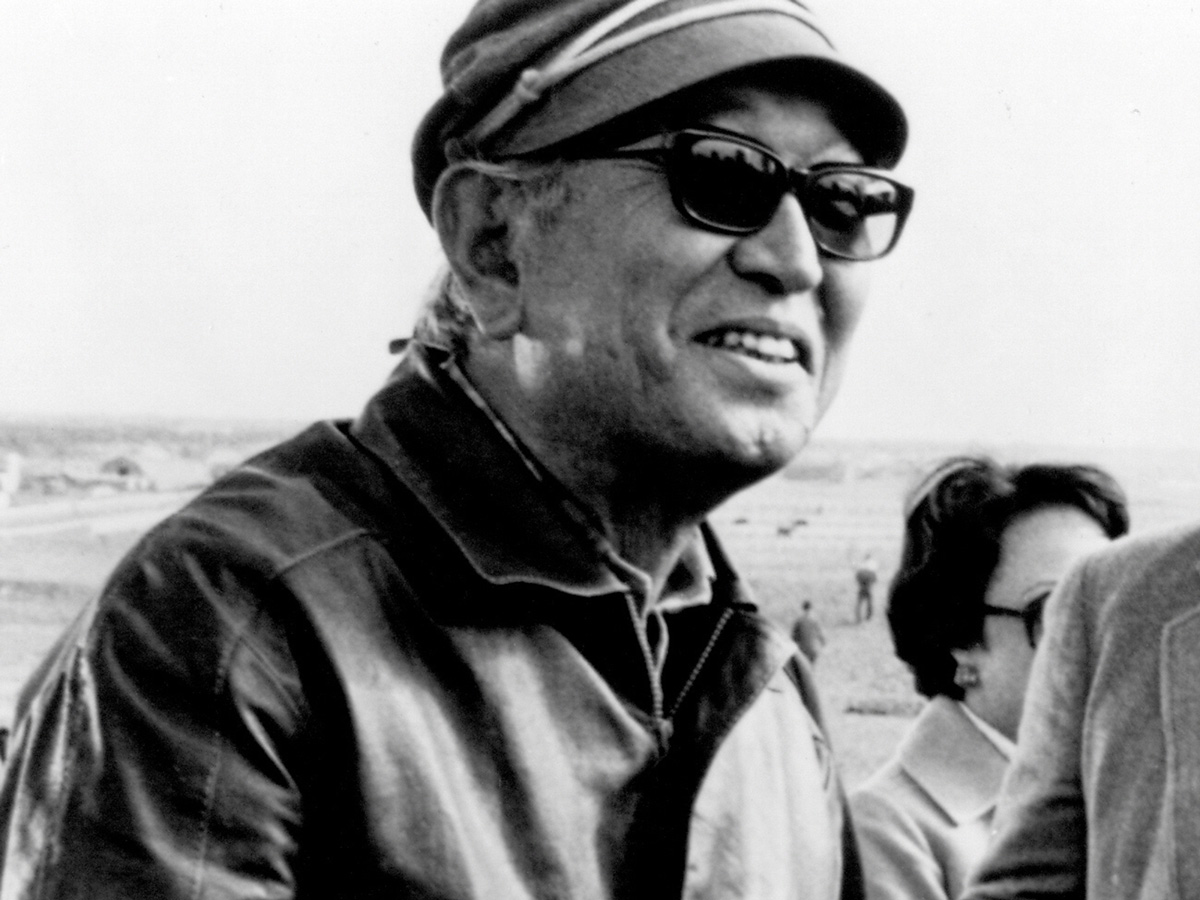
(c) Photofest / Getty Images
Why Akira Kurosawa's version of the ``Tokyo Olympics'' never materialized, Part 2
Hideko Takamine and the Olympics
As I wrote in [Part 1], Hideko Takamine, who watched a documentary film of the Berlin Olympics with Kurosawa during the filming of `` Horse ,'' was severed by those around her. Since becoming a director, Kurosawa has not made any films starring Takamine, with the exception of ``The People Who Create Tomorrow,'' which he co-directed and excluded from his filmography.
However, in the scenario Kurosawa wrote after ``Horse,'' a heroine appears who appears to have been written for Takamine. ``Yuki'' was selected for the Japan Film Magazine Association's national policy film script competition. This is the story of a physicist who comes to a cold, snow-covered village based on what he saw and heard about life in the Tohoku region while filming ``Horse.'' When I read the script, it appears that Takamine will be playing the role of Fumi, a farmer's girl who is in love with a young scholar. I can't think of anything else. In fact, his teacher Yamamoto said, ``Kurosawa was still in love with Deco at the time, so I wrote about the association between snow and Deco.'' (``People Talking About Akira Kurosawa,'' Asahi Sonorama), the heroine of ``Snow'' This confirms Hideko Takamine's theory. This work was never made into a film, but in the text describing his vision for the production, Kurosawa wrote the following about the role of Fumi:
``I would like to ask the actresses who play Fumi.Just like snow falling silently, please try to convey the beauty of Fumi in the hearts of the audience without any notice. The first thing to do is to have a heart. Please don't ask me to explain Fumi's psychology with a clever face. You can only feel it in your woman's heart. I just want to know. , all I can say is that it's snow.'' (New Movie, June 1942 issue)
This is a sentence that makes you feel a part of the ``directing'' that Takamine never achieved, but the only time Kurosawa negotiated with Takamine to appear in the film after becoming a director was in `` Scandal '' (1950). Ta. This work was born out of Kurosawa's anger at the tyranny of journalism, but the origin of this righteous indignation may have been rooted in his relationship with Takamine when he was an assistant director. In fact, ``Scandal'' is about an up-and-coming painter and a vocalist who meet while traveling and end up staying at the same hotel by chance, but when they visit each other's room and are photographed together by a gossip magazine, they become embroiled in a scandal. This setting reminds me of the incident at Kurosawa's apartment that I wrote about in Part 1. Before entering the film industry, Kurosawa himself aspired to be a painter and was involved in the proletarian art movement, so he projects himself into the young painter played by Toshiro Mifune, and chooses Takamine as his partner. The reason for this may have been a very personal experience. In the end, it didn't materialize because Takamine's schedule didn't match, but Takamine later said of not appearing in this work, ``If I had acted, my life might have been very different.'' '' (`` Ningen Address Roku '' by Hideko Takamine/Bunshun Bunko), he looks back on it with a hint of meaning.
Takamine became involved in the Tokyo Olympics after the film was completed by Kon Ichikawa. Ichiro Kono, who was the Minister in charge of the Olympics, said, ``I saw a preview of a movie that was made to record the Tokyo Olympics, but I don't think it was recorded correctly because it emphasized artistry.''As the Minister in charge of the Olympics, , it is inappropriate to preserve this as a documentary film.'' (Asahi Shimbun Evening Edition, March 10, 1965), sparking the so-called ``record or art?'' controversy.
As people from all walks of life expressed their opinions, Takamine posted an opinion piece in the Tokyo Shimbun Evening Edition (March 18, 1965) entitled, ``I've come to my senses regarding the movie ``Tokyo Olympics.'' ``When I heard that Mr. Ichikawa had been chosen as the general director of the Olympic film instead of Mr. Akira Kurosawa, I thought, ``Even the officials had their eye on someone who was quite fashionable.'' However, it seems that this was just a quick mistake on my part, and the people involved had probably never even seen a single film by Kon Ichikawa, let alone the ``Kon Ichikawa Research'' to whom he was entrusted with such an important task.'' He criticized those involved and defended Ichikawa. Furthermore, this article led to a weekly magazine discussion with Minister Kono, and his active efforts in direct dialogue and negotiation with Ichikawa led to the resolution of the Tokyo Olympics controversy.
Five years The Day After, Ichikawa and Takamine reminisced about the Olympic issues in a weekly magazine interview, but Ichikawa had finished recording and Kurosawa was currently filming his new work Dodokaden , his first since Akahige . He says he is going to Toho Studio to encourage him, so Takamine is accompanying him. ``Setagaya, Kinuta's Tokyo photo shoot. This is my nostalgic old battlefield. Mr. Akira Kurosawa was as tall as a giraffe, wearing sunglasses, and was doing his best on stage.'' (``Ushio'' September 1970 issue) In Takamine's mind as he writes about the scene, he remembers watching ``Olympia'' with Kurosawa at a movie theater in Iwate, ``Tokyo Olympics'' where the director changed from Kurosawa to Ichikawa, and faint memories with Kurosawa. I wonder.

